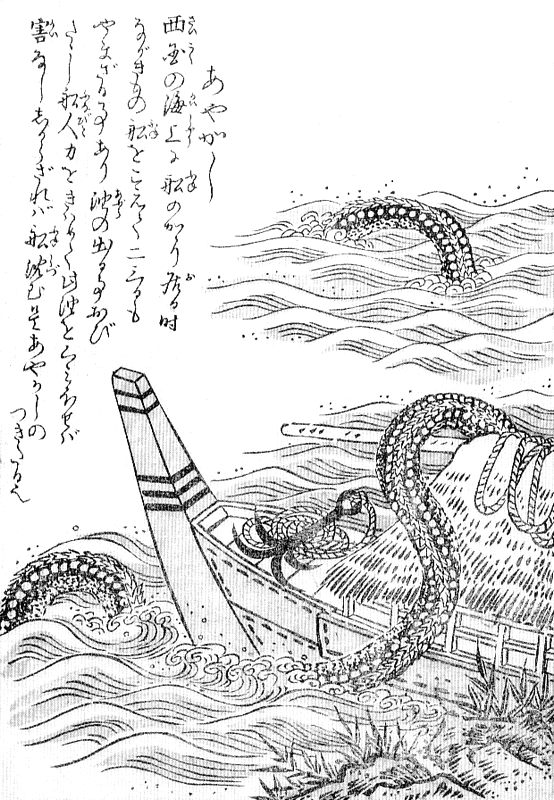
Here in Thailand, the rainy season has come. Unlike the one in Japan, it lasts for more than 6 months! Beautiful fresh green everywhere, and floods nourishes dry soil and help plants to grow. This is the season of tasty tropical fruits, too, including passion fruits.
Today's post is continued from the last one about 'Passion Fruits' by Fujifabric.
Let's take a look at the lyrics.
The song begins with the main melody and the lyrics going along with it, "Yume No Naka De Ayakashi Passion Hibiki Wataru Fanfare" (In the dream, strange passion the fanfare resounding) keeps repeating in the head if you listen to it once for sure!
Where does the feeling of 'unidentified nationality' and 'a mystery time setting' come from?

The word, 'Ayakashi' can be translated as 'something strange or suspicious', but the word originally derives from a ghost that appears at sea during a shipwreck.
Japan is surrounded by sea, and a large number of Japanese people are engaged in fishery. There are many folk tales and legends of fishermen, and that shows their job is always a struggle with mother nature risking their life.
Ayakashi is a ghost at sea trying to sink ships in a storm. They suddenly appear and stop the ship by putting their hands on the edge of the ship asking for a ladle. Fishermen believe that you are supposed to give the one with no bottom, otherwise Ayakashi would ladle water up into the ship and sink it, according to Mr. Shigeru Mizuki.
This is the reason why the word, 'ayakashi' sounds more spooky than the word, 'ayashii', which also means strange. We have stepped in the marvelous world of Fujifabric already.
Another point that attracted my attention was there are many words implying the West in the lyrics.

For instance, 'fanfare', 'Odoru Dokeshi' ('a dancing clown'), 'vampire', 'Majutsushi' ('wizard'), 'Tejinashi' ('magician'), 'Kindan No Yakusoku' ('the forbidden promise'), and so on.
The words written above have been imported from the west and been applied adequate words which share the similar meanings in Japanese language. Because of their foreign origin, the words in the lyrics give us an impression of the West in my opinion.
There are two persons in the lyrics - "Boku", (first person pronoun for a man) and "another one". I always believed that is a lady, but in fact, no specific words are found implying that is a lady. 'Firm prim look', 'a suppressed smile', 'please keep your glasses on' might have made me imagine a lady.
Shimura kun explained that the music sounds like a popular song in Pakistan. Why is it?
Let's take a look at the music in the next post.
Today's song is 'Passion Fruits'.

No comments:
Post a Comment